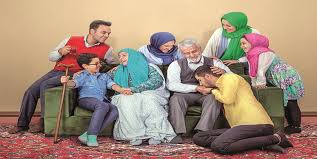


16 01 2024 08:55
News Code : 61490
View Count : 1493
The family, as the most stable and fundamental human institution, has always faced numerous threats and challenges throughout history. However, we have never witnessed such overt and comprehensive attacks aimed at uprooting the family from society through gender ideology.
The family, as the most stable and fundamental human institution, has always faced numerous threats and challenges throughout history. However, we have never witnessed such overt and comprehensive attacks aimed at uprooting the family from society through gender ideology.
The recognition of various spectrums of gender orientations and new forms of family by some Western countries, and the efforts to normalize these new concepts in other countries and societies through international documents and conventions, are among such attacks.
In such circumstances, the responsibility of Islamic societies, and societies aware of the value and importance of the institution of the family, is more crucial and decisive than ever before. In a situation where different forms of abnormal, illegal, and inhumane families emerge and proliferate with the help of the media, preserving the framework of the family and insisting on its essentials becomes necessary and inevitable.
Achieving this goal requires necessary prerequisites, including determining and elucidating the system of family issues. In other words, the family is so obvious and ingrained in people's minds that sometimes we overlook the necessities and requirements of it. Delving into the system of family issues and considering all dimensions of the family is necessary and often forgotten.
The system of family issues does not necessarily mean examining the history of the family and its various forms, such as extended and nuclear families. The family has its own specific purpose and function, and disregarding these in understanding its issues renders the design of the system of family issues futile and even meaningless.
In the Islamic definition, the family consists of a father, mother, and children, and regardless of the presence of one or more generations, it has its own distinct purpose and focus. Islam's perspective on the family is unique, and as a result, each member has their own specific role. Moreover, the creation of each man and woman is based on these roles.
In regulating and explaining the system of family issues, attention to the different roles of individuals in it, and their rights and obligations, is crucial. The family envisaged by Islam is one where members find residence and tranquility, where each member's duty is the right of the other members, and consequently, their rights are the same obligations placed upon them. Ultimately, the existence of this system of rights and duties leads to the stability of the family on the ethical path. Obviously, such a family system is entirely different from a homosexual family or other abnormal forms. Therefore, the first step in designing the system of family issues is to identify which family? After defining the concept of the family, its constituents, and the purpose forged for it, we should approach the system of its issues. Enumeration, description, and elaboration of the system of family issues with the concept desired by Islam, in fact, is the promotion and explanation of the real family, and the rejection of the fictitious types of family.
On the other hand, safeguarding this family necessitates delineating its boundaries in relation to society, and interaction between the two in a way that consolidates the family's position properly, becomes a positive move towards the family's strength, and displays the correct model of the family and accomplishing its goals and functions.
In the present era, the efforts of global capitalism targeting the eradication of the family through gender ideology and promoting queer and sexual fluidity orientations essentially aim to undermine the foundation of the family and destroy it entirely. Formulating the system of family issues clarifies the real issues facing the family, its challenges, threats, and opportunities, the clarity of its strengths and weaknesses, highlighting the shortcomings of relevant institutions, and the deficiencies in the family's interaction with society. It also enables categorizing issues in various areas such as legal, social, religious, etc. In such conditions, specialists in the field of family can more easily examine and address challenges. Threats can turn into opportunities, and ultimately, it is the family institution that can weather the storms of events and continue its existence with increasing stability.